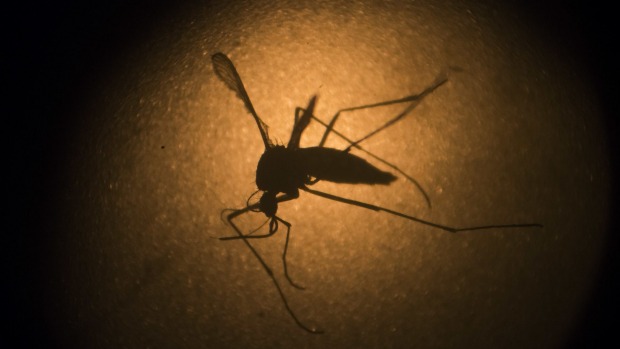A group of 150 doctors, scientists and bioethicists have written a letter to the World Health Organisation calling for the Rio Olympics to be postponed or moved because of concerns of the spread of the Zika virus.
The letter cites concerns about further spread of the virus and developing information about it in calling for the Games to be delayed or moved. The letter writers questioned whether the WHO is rejecting alternatives of when and where the Games should be held because of a conflict of interest with the International Olympic Committee.
“Currently, many athletes, delegations, and journalists are struggling with the decision of whether to participate in the Rio 2016 Games,” the letter states. “We agree with the U.S. Centres for Disease Control recommendation that workers should “consider delaying travel to areas with active Zika virus transmission”. If that advice were followed uniformly, no athlete would have to choose between risking disease and participating in a competition that many have trained for their whole lives.”
The letter notes the concern for global health, citing the possibility of Olympics travellers acquiring the Zika virus in Rio and then returning home, especially to currently unaffected areas.

“It is unethical to run the risk, just for Games that could proceed anyway, if postponed and/or moved,” the letter states.
The letter writers include Amir Attaran, a University of Ottawa professor who specialises in public health and wrote earlier this month in Time that the Olympics should be moved or postponed.
Dr. Arthur Caplan, the director of the division of medical ethics at New York University, co-authored the letter, as did NYU professor Lee Ingel and Christopher Gaffney from the University of Zurich.
As of early Friday afternoon, the letter had 150 signatures from doctors, scientists and medical ethicists around the globe.
The WHO and IOC did not immediately respond to a request for comment from USA TODAY Sports.
In February, the WHO declared the Zika virus and international public health emergency. The mosquito-borne virus has spread to 58 countries and territories, mostly in Central and South America. It has been shown to cause microcephaly, a birth defect that causes babies to be born with smaller-than-normal heads and developmental delays, and linked to Guillain-Barre, a neurological condition that causes paralysis.
Brazil has been one of the countries hardest hit by the virus, which exhibits relatively mild symptoms in the 20 percent of those infected who experience them.
Olympic organisers have been patrolling the venues for months, seeking to remove standing water where the Aedes aegypti mosquito that spreads the virus can breed. They have also cited the timing, with the Games occurring during Rio’s winter, as likely to lessen the threat of the spread of the virus.
The CDC has advised pregnant women not to travel to affected areas. For those who do travel, the CDC has advised wearing long sleeves and pants, treating clothing with permethrin, using insect repellent and staying in air-conditioned environments.
The letter asks the WHO to reconsider its advice on the Rio Olympics for several reasons, saying:
— While individual risk is low, the risk to a population is “undeniably high”
— Rio de Janeiro is highly affected by Zika
— Rio’s health system has been weakened, including by city funding cuts against mosquito-borne disease
— Because the Aedes aegypti mosquito had previously been eradicated from Rio that holding the Olympics in the presence of these mosquitos “is a choice and not a necessity”
— The summer season in the northern hemisphere is also relevant to the course of the epidemic. The letter cites a 2010 memorandum of understanding between the WHO and the IOC, which has not been released, as evidence of a conflict of interest and suggests a change in leadership at the WHO, which is led by director Dr. Margaret Chan, is necessary to restore credibility.
“WHO must revisit the question of Zika and postponing and/or moving the Games,” the letter concludes. “We recommend that WHO convene an independent group to advise it and the IOC in a transparent, evidence-based process in which science, public health, and the spirit of sport come first. Given the public health and ethical consequences, not doing so is irresponsible.”
